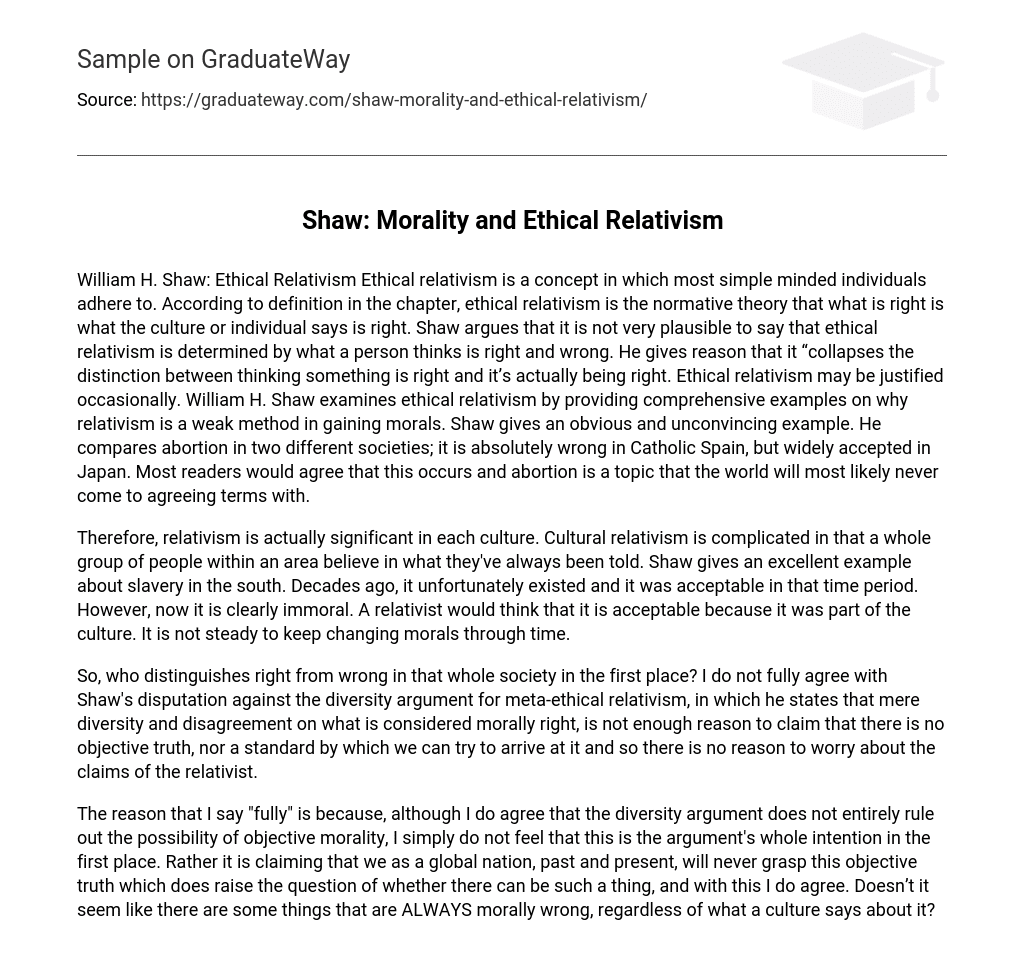Ethical relativism, as explained in the chapter, posits that cultural or individual perspectives determine what is deemed morally correct. Shaw contends that ethical relativism cannot be solely rooted in personal convictions regarding right and wrong. He asserts that this standpoint obscures the distinction between perception and actuality. Nevertheless, Shaw concedes that ethical relativism may be partly justified under specific circumstances.
William H. Shaw examines ethical relativism by providing illustrative examples that reveal its shortcomings in establishing moral norms. Shaw presents a notable case where he contrasts the varying viewpoints on abortion in Catholic Spain and Japan, which is unconvincing but conspicuous. While one society unequivocally considers abortion as immoral, it is widely accepted in the other society. This instance emphasizes the persistent dispute surrounding abortion, suggesting that reaching a consensus on this issue is unlikely.
Relativism holds significant importance in every culture, as it is complex in nature. Cultural relativism is evident when a collective group adheres to long-standing beliefs. Shaw provides a powerful illustration with the issue of slavery in the southern part of the United States. In the past, although regrettable, slavery was deemed acceptable within the prevailing societal norms. However, present-day society widely recognizes the immorality of such practices. Relativists would argue that this acceptance was justified due to cultural context. The concept of constantly shifting morals over time lacks consistency.
In society, the question arises as to who decides what is right or wrong. I do not entirely agree with Shaw’s argument against the diversity argument for meta-ethical relativism. Shaw believes that just because there is diversity and disagreement about what is morally right does not mean that there isn’t an objective truth or standard to aim for. Hence, there is no need to worry about the assertions of relativists.
While I acknowledge that the diversity argument doesn’t entirely negate the existence of objective morality, its primary aim is not solely centered on that. Its main contention is that as a worldwide community, throughout history and at present, we will never completely grasp this objective truth. This prompts us to ponder whether such a concept can even exist, and I concur with this perspective. Isn’t it clear that certain actions are universally regarded as morally incorrect, regardless of cultural convictions?





